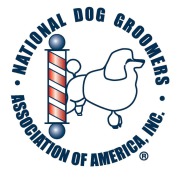
Dental Health
THINK ABOUT THIS...
What happens if you don't brush your teeth for a week? Well, your teeth would look and feel like they're wearing little "sweaters", AND... you breath would be so bad that you'd be completely socially unacceptable!
What if you just stopped brushing... long term???
Plaque build-up, gum disease, and tooth loss.
What about your dog?
Well, a week wouldn't do much, but long-term?
Same thing!!!
What's going on in your pets mouth?
Same as in people mouths! Plaque forms, and builds up.
Tartar forms. Gums become inflamed. Inflamation causes soft tissue to decay and destroys bone. Then, tooth loss.
PLAQUE... is a soft, colorless, sticky film which builds up on tooth surfaces. It combines with saliva and sugars, producing deposits, which release acids. Acids attack tooth enamel and gums, leading to cavities and eventually, gum disease. Left on the teeth untreated, plaque turns into tartar.
TARTAR... is a hard, yellow or brown deposit which is the result of plaque build up mineralizing on teeth, and leading directly to gum disease.
SIGNS OF GUM DISEASE:
* odor
* bleeding, red or swollen gums
* gum recession
* pain, although many dogs never show it
GUM DISEASE DOESN'T STOP THERE.
IT LEADS TO:
* tooth loss
* broken or fractured teeth
* sinus infection
* sepsis (infection of the blood)
AND, CONTRIBUTES TO:
* heart infection and failure
* kidney infection
* cancers
FYI...
In pets, gum disease occurs FIVE times more often than in people.
Approximately 80% of dogs over 3 years old have gum disease.
WHY???
Pets can't brush their own teeth, and their owners don't. Even though we know that lack of brushing is the leading cause of gum disease, very few owners commit to daily tooth brushing.
PREVENTION
If you're my age (old!) you might remember a TV commercial... a mother teaching her daughter to take care of her teeth... and, in a sing-song voice, she says "Brush, brush, brush JoAnnie"!
Remember? Well, that was a good laugh in my family for years! Obviously, for me, it's still funny! You know what they say about comedy... truth is hilarious.
WHAT CAN YOU DO?
Brush, brush, brush, of course!
Brush every day! Also, provide a good quality food, provide safe chews designed to clean the teeth, and make sure your pet has regular vet visits. Oh! Did I mention brushing? Daily, please, if possible!
WHAT CAN YOUR GROOMER DO?
They can brush. They can teach you to brush, and help introduce your pet to a toothbrush. They can check those teeth each time your pet visits. Some groomers do light scaling. Perhaps more importantly, they can alert you to a problem before it becomes serious.
WHAT CAN YOUR VET DO?
During a typical exam, your vet will check those teeth and the gums. You can't do that, nor can your groomer, because we don't have the training and knowledge. If your vet suggests a full dental, it means your pet needs it... it does NOT mean the vet wants more money.
A full dental includes ex-rays, which allows them to see everything that is happening in the dogs mouth. Under general anesthesia (which is very safe nowadays) he will evaluate everything... teeth, gums, tonsils... everything. It takes a lot of time, a team of professionals, and mostly, an incredible amount of knowledge.
So... is it expensive? Maybe. It depends on how you look at it. The bottom line? It can add years to your pets life. And, it will improve their quality of life.
BACK TO PREVENTION
It's far better to care for your pets teeth on a regular basis, and hopefully prevent problems. Maybe your pet will never need a full dental!
So... brush, brush, brush, JoAnnie!
AND, TALK WITH YOUR GROOMER!
They can help with prevention!

